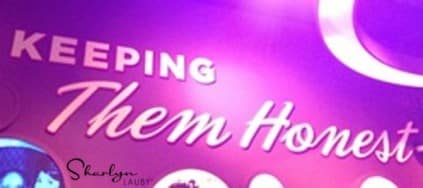Why Job References are Important – Part 2 – Ask #HR Bartender
In part one of this series about references, Heather Bussing shared with us the legalities associated with references. Today, I want to focus on how to best use references during a job search. Because the reference process isn’t going away. We need to be educated on the best way to select and use references.
Jacqui Barrett-Poindexter is a Master Resume Writer (MRW) and owner of CareerTrend, a professional resume writing service. Jacqui has shared her expertise with us before and I’m delighted she agreed to help us out again.
First off, are references important? I mean doesn’t everyone’s references say they’re nothing short of perfect?
[Jacqui] Yes, references are fundamental to the career interview and hiring process. A solid reference will present meaty evidence of why/how you performed your job well and added value to the company, the leadership, your team, to individual projects and more. References that provide testimony with teeth to them versus simply adjectival proclamations of your amazing, perfect ways are what matter, though. Painting you as faultless is not the objective of a strong, value-focused reference.
Are LinkedIn recommendations and endorsements a substitute for references?
While hiring decision makers and recruiters will review LinkedIn recommendations (if written well), those recommendations should not substitute for in-real-time references; instead, consider them a supplement.
LinkedIn endorsements are somewhat new participants in the reference party and should not be considered a substitute for references. As well, a downside to endorsements is how easy it is for people in your network to endorse you, even those who never witnessed your work performance. This can make it simple to over-endorse people in your network, diluting the endorsements’ value. However, if managed well, they may reinforce your particular areas of expertise.
Who should you ask to be a reference? Is it a bad sign not to ask your last boss?
[Jacqui] A variety of individuals make solid references: past bosses, past leaders/managers to whom you reported either directly or in a matrix environment or with whom you collaborated on projects, under their leadership. As well, you can ask customers, colleagues, vendors and networking colleagues with whom you have volunteered on projects or other initiatives. In many (if not most cases – use your discretion), you can ask the specific reference to write or speak about particular attributes, areas of expertise or qualities you exuded.
Moreover, you may point them to a specific project, financial improvement, marketplace expansion or other effort to which you contributed and why / how your contributions helped keep the initiative on track and helped move it across the finish line. By guiding the reference as to talk points, you can further anticipate a focused, meaningful and positive outcome.
I would say that, depending upon the reason for your separation, it is understandable to most hiring decision makers that your boss may (or may not) not be the best gauge for articulating your value, so including (or not including) your last boss as a reference is a personal choice. If asked directly for permission to speak with your last boss, and you decline, be sure to not over-explain ‘why’. As an alternative to providing your last boss as a reference, you may want to provide someone else during that time frame who witnessed your performance and would remark favorably, such as a supervisor or colleague or even a client!
Is it possible to have outdated references?
[Jacqui] Yes – a reference from 10 years ago generally is not as valuable as someone you collaborated with, say, one year ago, or one month ago. The ‘what-have-you-done-lately’ rule of thumb applies here.
How can you be sure your references are saying good things about you?
[Jacqui] Reference checking services are available. While I don’t personally have experience with any such organizations, an example would be Allison & Taylor, Inc., whom you can hire to perform detailed reference checking on your behalf.
What should you do if you find out a reference said something untrue about you? What can you do if it was true, but you wish they hadn’t mentioned it?
[Jacqui] If the reference’s remarks are untrue, then proactively explain to the hiring decision maker that fact. Do so with calm confidence and authenticity, and without apology. The only modest apology you might make is for the time wasted by the hiring company seeking out what ultimately was false testimony.
As well, if it was a true statement, prepare a focused, non-defensive response to help assuage concerns. For example, if the reference said that you were continually late to work, explain to the interviewer that you have corrected that behavior and made adjustments to how you prepare for and get to work on time.
My thanks to Jacqui for sharing her experience with us. If you want to read more of her work, be sure to check out her blog and follow her on Twitter.
Image courtesy of HR Bartender
0